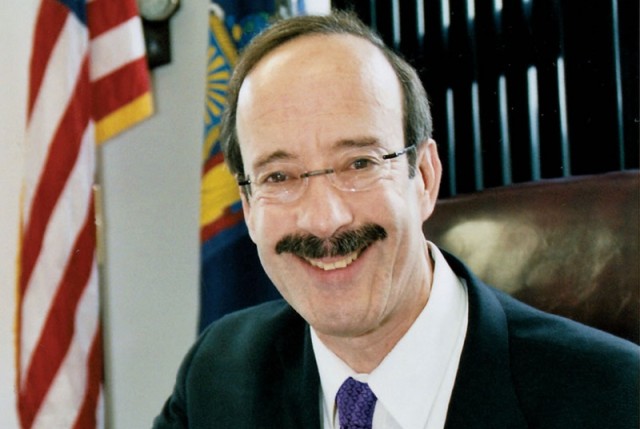
Rep. Eliot Engel
February 17 marked the fifth anniversary of Kosova’s independence, and the people of Kosova have a great deal of which they can be proud. In only five years as an independent state, Kosova has been recognized by almost 100 countries, it is a member of the World Bank, IMF, and EBRD. Kosova’s sovereignty is stronger than ever with the end of “supervised independence,” and inter-ethnic relations are making visible and steady progress. The World Bank put an exclamation point on its accomplishments when it confirmed in its important “Doing Business 2012” report that no country had improved more than Kosova.
It has been a honor and a pleasure to stand by the people of Kosova as they have moved from tragedy to triumph over the last 20 years. But the struggle is not yet over. Kosova is still impeded by some countries’ unwillingness to recognize the new nation while others still block Kosova from joining the UN and smoothly advancing on its Euro-Atlantic future.
Even with the difficulties, the EU-sponsored Kosova-Serbia Dialogue has made real progress. That is good news. The meetings between Prime Ministers Thaci and Dacic and Presidents Jahjaga and Nikolic are encouraging to a region which longs for an end to conflict and to peoples who want to live their lives in peace and prosperity. The personal involvement and leadership of Secretary of State Clinton and EU Foreign Policy Chief Lady Ashton has been critical to the advances we have seen. But we must not stop there. It’s time to reach beyond than small, less-significant arrangements, and toward an accord which might bring the long-standing conflict to a conclusion.
With John Kerry taking over as Secretary of State, it is vital that the United States continue to put a priority on this region and ensure that the Dialogue will not devolve into talks for the sake of talks — because, in the Balkans, we know from experience that stagnation breeds frustration and conflict. Continued progress between Kosova and Serbia and throughout the Balkans is always accompanied by high-level U.S. attention.
Along with the Dialogue, Kosova’s progress toward the key Euro-Atlantic structures, the European Union and NATO, must be a priority for the United States and our European allies. Brussels is working with Prishtina on moving Kosova toward a Stabilization and Association Agreement and toward Visa Liberalization where Kosovars would be able to travel freely to Europe as citizens of their fellow Balkan countries can already do. Unfortunately, the progress is halting and slow, and unlike its neighbors, every little step in Kosova’s progress with Brussels could face a veto by one of the five EU non-recognizers. While this makes the climb even steeper, it makes Kosova’s accomplishments even more significant. In the end, we must be clear-eyed that Kosova must be included in Europe along with its neighbors, because otherwise we would create a new black hole in the Balkans where our worst fears of crime, corruption, and worse could come true.
Kosova’s pathway toward NATO is equally important. Along with other countries in the region, Kosova’s membership in NATO will cement its Western outlook while adding another strongly pro-American country to the Alliance. Of course, membership in NATO requires Kosova to develop a military, and I am glad that we may see the early steps in that direction through the planning of a professional, defensive army later this year. As a sovereign and independent republic, Kosova has every right to build its armed forces, and it speaks highly of the new country that it plans to work closely with the United States and our European allies on the timing and organization of its defense forces. We must not buy into the irrational fears of some who express unfounded misgivings about a potential Kosova military considering the assurances that it will be small and defense-oriented. Regardless, I look forward to the day when Kosova’s troops will stand side-by-side with American soldiers in the fight against international terrorism and other global ills.
There are certainly additional challenges which the new country must still address. Unemployment is high, corruption continues to place a drag on the economy, and inter-ethnic relations must continually be strengthened. At the same time, agreements between Serbia and Kosova must be fully implemented, and parallel structures in the north must either be eliminated completely or made a transparent part of the unified Kosovar state so that minorities can be treated fairly wherever they are.
The United States has and will always remain the best friend of the Republic of Kosova. We will continue to promote Kosova’s development, respect for its sovereignty, and expansion of the number of recognizing countries. With the growing friendship between our nations and our peoples, it is my hope that the next five years will be even better than the first five.
U.S. Rep. Eliot Engel (NY-16), is the Ranking Member, House Foreign Affairs Committee.
